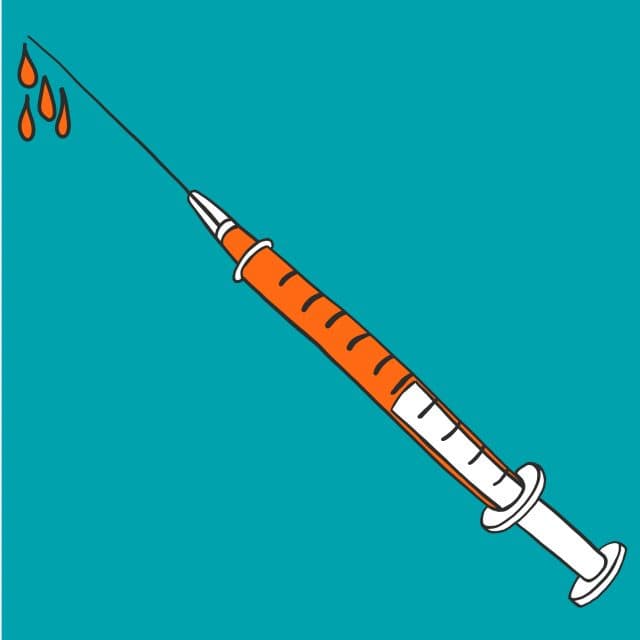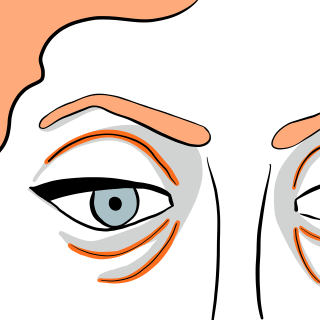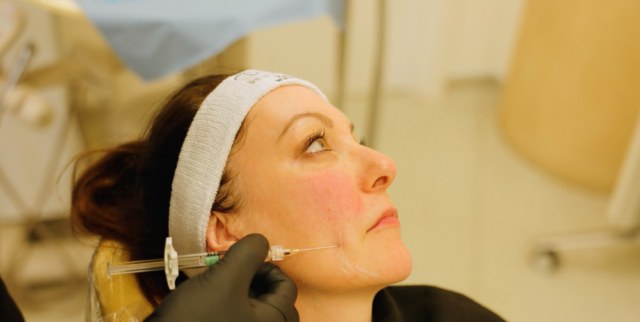What exactly are polynucleotides?
Polynucleotides are biopolymers composed of long chains of nucleotides – the building blocks of DNA and RNA. Most beneficially for the skin, they are biostimulators, which means when they are injected they encourage our skin to regenerate itself from the inside out.
What are polynucleotides made from?
It’s not the prettiest source, but polynucleotides are derived from salmon sperm DNA – after it has been filtered, ultra-purified, and sterilised of course. It’s used because it closely resembles human DNA.
Are polynucleotides safe?
Yes. Polynucleotides are widely regarded as safe by the trusted practitioners we have spoken to, and they are being increasingly offered in our favourite clinics. That said, as is true for any new trending tweakment, always consult a qualified practitioner before diving in.
Do polynucleotides injections work?
Yes, polynucleotides can be used to improve skin quality and appearance in a multitude of ways, via boosting collagen production, hydration and elasticity. The result is a reduction in the appearance of wrinkles, crepiness, sun damage, hyperpigmentation and scarring. They are specifically recommended for counteracting dark circles under the eyes too.
Are polynucleotides suitable for everyone?
Unfortunately, not. The tweakment should be avoided by those with circulatory disorders, ongoing dermatitis, epilepsy, diabetes, active herpes, and autoimmune disease. It’s also not suitable for anyone who is pregnant or breastfeeding.
Can you have polynucleotides if you are allergic to fish?
Despite being derived from salmon sperm DNA, those with fish allergies can have polynucleotide injections according to leading practitioners. However, if you have any concerns, do speak to your doctor before booking your appointment.
At what age should I get polynucleotides injections?
That’s up to you. They can be used as a recovery treatment to counteract signs of ageing, or more preventatively for younger skin.
Can they be used alongside other tweakments?
Yes. They can be complementary to tweaks such as injectable moisturisers, including Profhilo. They can also be useful for improving skin condition ahead of energy-based treatments like laser or ultrasound.
How long do polynucleotides take to work?
Although the results are not immediate and you need multiple sessions, you’ll start to see the benefits in a matter of weeks, which is relatively quick. For comparison, most brands of injectable moisturiser don’t promise results for several months.
How long do polynucleotides last?
The improvements in skin condition and quality can usually last between six and nine months. Re-injection is then recommended to prolong results.
Are there any side effects to injectable moisturisers?
As with all procedures involving needles, there will be some immediate, yet not long-lasting, redness around the injection sites, and a risk of bruising. Other than that, there are no associated side effects. However, make sure to find a skilled practitioner because a novice could inject the product incorrectly and you won’t see the benefits.
Where can I get polynucleotides?
A growing number of aesthetic clinics now offer polynucleotide treatments. You can find many clinics that offer these treatments through the practitioner finder on this website.
How much do polynucleotides cost?
Much the same as other injectable moisturiser treatments, so between £350 and £450 per round of treatment, depending on how big an area you’re having treated, and where the clinic you’re visiting is located.
How long does a polynucleotide appointment take?
It’s not necessarily a long appointment, but the time taken depends on the number of injections you have, whether you opt for numbing cream which needs time to kick in, and the general speed of your practitioner.
Does polynucleotide treatment hurt?
It really depends on your pain threshold and the skill of your practitioner. The pin-prick injections are quick and not individually very painful, but you do need a lot of them all over your face.










 The Tweakments Chatbot
The Tweakments Chatbot